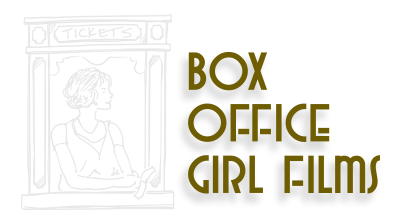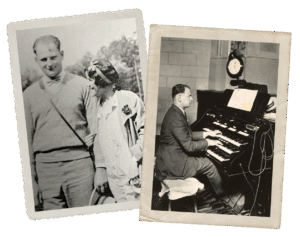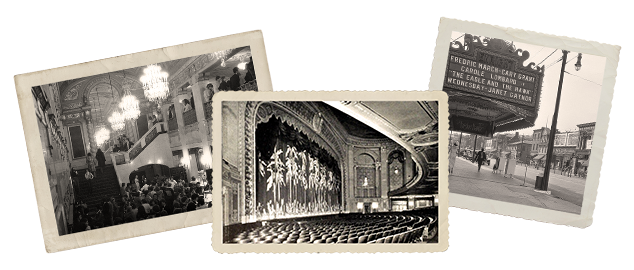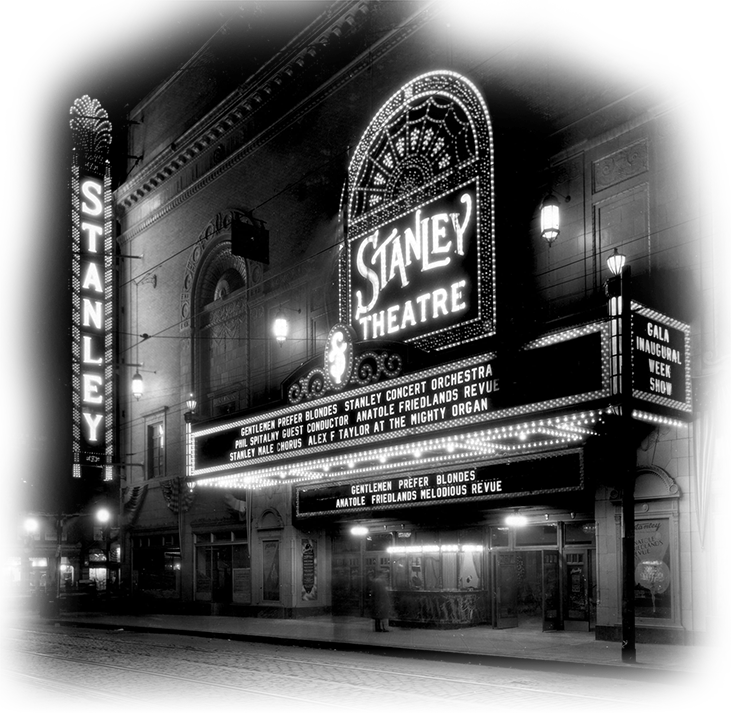
IT WAS 1918.
My grandmother Ruth had a full scholarship to the University of Pittsburgh—quite an accomplishment for a woman at that time. During her junior year, her father asked her to leave school. The family was struggling, and her younger brother needed help paying for his college education. Back then, it was widely believed that a man’s degree mattered more.
Ruth stepped away from her dreams to support someone else’s. She took two jobs. By day, she worked as a bookkeeper at Northside Deposit Bank.
By night—and on weekends—she worked the ticket booth at the 3,800 seat Stanley Theater. She was the Box Office Girl, a title she wore with quiet pride.
It was there, beneath the theatre’s marquee and the hum of the crowd, that she met William Hock—the charming organist and theatre manager. Amid the ticket lines and the flicker of Hollywood movies, their story quietly began.

I’M THEIR GRANDDAUGHTER.
More than a century later, I’ve spent my career as a writer and director in the film industry. And I’ve never stopped thinking about how my love of storytelling was born—in part—at the Stanley Theater, in the hearts of the Box Office Girl and the man who fell in love with her.
Box Office Girl is more than a name. It’s a tribute to the woman who gave up everything so others could move forward. It’s a love letter to cinema. And it’s a reminder that stories—when told with heart—can echo through generations.
I create content that I hope would make my grandparents proud—transformative stories with depth, meaning, and purpose. Stories that uplift, inspire, and spark change. I’m happiest when I’m working as a filmmaker, doing the work I was born to do. And I will always be indebted to the theatre manager and the Box Office Girl who sparked it all.

